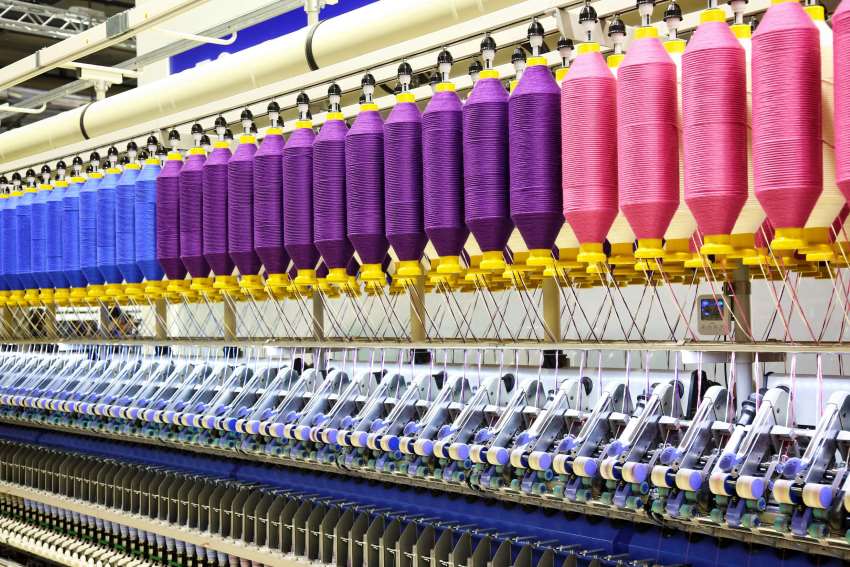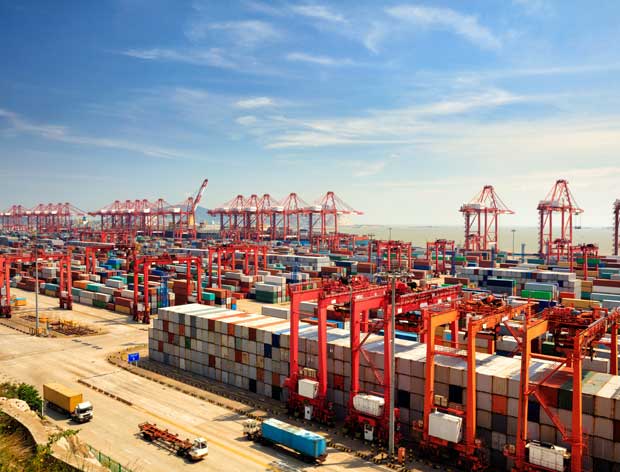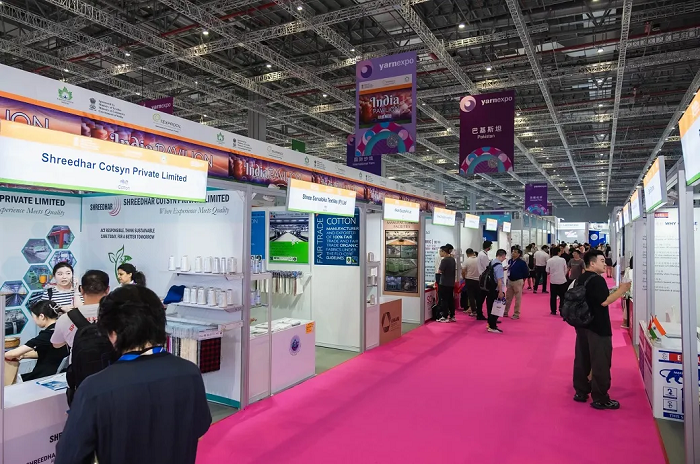Organised by the Hong Kong Trade Development Council (HKTDC) and sponsored by the Cultural and Creative Industries Development Agency (CCIDA), Centrestage 2024 will take place from September 4 to 7 at the Hong Kong Convention and Exhibition Centre.
The event will kick off with the Centrestage Elites opening show on September 3, featuring renowned designer Robert Wun, who will present his collection themed “Home” at the Hong Kong Palace Museum.
Wun’s participation marks a significant homecoming, as he is the first Hong Kong designer to present at Paris Haute Couture Week. His collection pays tribute to his grandmother and the resilient spirit of Hong Kong women, drawing inspiration from local music, television, and cinema.
Discovered by Joyce Boutique after showcasing his graduation collection in London, Wun launched his brand in 2014. He has received numerous accolades, including being named one of Fashion Asia Hong Kong's 10 Designers to Watch in 2020 and winning the Andam Fashion Awards Prix Special in 2022. His designs have been worn by celebrities like Beyonce and Lady Gaga.
On September 5, Wun will lead a masterclass sharing insights from his journey. Centrestage continues to serve as a vital platform for global fashion, featuring a dynamic lineup of shows, seminars, and networking events that enrich the Asian fashion landscape.
Kraig Biocraft Laboratories, Inc. announced that its commercially produced recombinant spider silk has demonstrated the same exceptional strength and toughness as seen in previous small batch tests. This successful result paves the way for the company to accelerate commercial production.
Last week, Kraig Labs conducted rigorous testing at its R&D headquarters, comparing its spider silk to regular silk using a high-precision tensile testing machine. The tests involved monitoring force, displacement, yield strength, ultimate tensile strength, and elongation. The analysis confirmed that Kraig Labs' spider silk outperforms traditional silk, maintaining mechanical superiority.
Crucially, this testing showed no loss in the material's strength or toughness despite the significant increase in production scale. While the positive results were anticipated, they mark an important milestone by proving that lab successes can be replicated in commercial production.
COO Jon Rice stated that the test results validate the performance of their spider silk and confirm the existence of a scalable system for commercial production. While the company anticipated these outcomes, the results provide reassurance as they continue to scale up production.
This achievement solidifies Kraig Labs' position to aggressively move forward in the commercial production of sustainable spider silk.
American Association of Textile Chemists and Colorists (AATCC) test methods are increasingly recognized worldwide as essential tools for the textile industry. The organization's rigorous consensus-based process ensures the development of high-quality standards that are adopted by countries like Colombia and Sri Lanka.
Colombia has recently incorporated three AATCC colorfastness to water test methods into its national standards. These standards will enhance the country's textile industry by providing clear guidelines for product quality and consistency.
Additionally, Colombia is exploring the adoption of more AATCC standards in areas such as dimensional stability and fiber analysis.Sri Lanka is also committed to adopting AATCC standards to bolster its textile sector. The country recognizes the value of AATCC's expertise in guiding the standard-setting process.
Beyond national adoption, many AATCC test methods have been incorporated into ISO standards, solidifying the organization's position as a global leader in textile testing and standardization.
The National Council of Textile Organizations (NCTO) President and CEO Kim Glas applauded the introduction of the bipartisan “Protecting American Industry and Labor from International Trade Crimes Act.” This legislation, spearheaded by House Select Committee on the CCP Chairman John Moolenaar (R-MI) and Ranking Member Raja Krishnamoorthi (D-IL), aims to tackle trade fraud that threatens American textile and apparel manufacturers.
Glas emphasized the need for enhanced federal resources to address the growing prevalence of trade crimes impacting the industry. The proposed bill will establish a dedicated structure within the Department of Justice’s Criminal Division focused on aggressively prosecuting international trade offenses.
The US textile and apparel supply chain has suffered significantly from trade fraud, including the import of products made with forced labor, fraudulent rules of origin claims, and exploitation of the de minimis trade loophole. Recently, these issues have contributed to the closure of 18 textile plants and substantial job losses, exacerbating challenges for Western Hemisphere trade partners.
Glas emphasized that the bipartisan legislation represents a significant advancement in addressing extensive fraud, holding wrongdoers accountable, and safeguarding essential domestic industries. The NCTO asserts that prompt action is crucial to create a fair and equitable marketplace for American manufacturers and workers.
The VDMA Textile Machinery Association has released a position paper addressing the EU's stringent regulations for the sustainable transformation of the textile industry. The document highlights the need for efficient processes, circular economy practices, and binding rules to reduce the industry's environmental impact.
VDMA Textile Machinery members are dedicated to helping customers worldwide reducecarbon dioxide emissions in textile production, according to VerenaThies, Deputy Chairwoman of the association. The association highlights the significance of textile-to-textile recycling and the technical requirements for efficiently reusing both natural and synthetic fibers.
The position paper calls for realistic targets and measurable outcomes in the EU regulations, minimizing bureaucracy to facilitate smoother implementation. It also underscores the necessity of market surveillance to ensure fair competition among market participants.
To foster innovation and competitiveness, the VDMA Textile Machinery Association advocates for improved conditions in Germany and the EU. Key recommendations include the provision of affordable green energy, which is crucial for sustainable recycling solutions, and enhancing location conditions. These improvements encompass access to skilled labor, reduced bureaucracy, shorter approval periods, investment security, and tax reductions.
The association believes these measures are essential for advancing sustainability in the highly competitive textile industry, ultimately contributing to a greener, more efficient future for textile production.
The Confederation of Indian Textile Industry (CITI) has joined hands with the Fair Wear Foundation to prepare Indian textile exporters for the European Union's upcoming Corporate Sustainability Due Diligence Directive (CSDDD).
Enacted in May 2024, the CSDDD requires European companies to enforce human rights and environmental due diligence throughout their global supply chains. This directive aims to create a unified legal framework within the EU, reducing the multiplicity of reports, and fostering legal certainty.
CITI's Immediate Past Chairman, T Rajkumar, emphasized the directive's potential to transform the Indian textile sector, enabling it to meet global standards and engage more effectively with stakeholders. He highlighted the opportunity for Indian manufacturers to adopt HRDD practices, which would enhance their negotiation leverage and risk management.
As part of this initiative, CITI and Fair Wear Foundation organized a Capacity Building Workshop titled "Sustainable Practices: Navigating Social and Environmental Compliances" in Coimbatore on July 26, 2024. The workshop, held in association with the Southern India Mills Association (SIMA), featured insights from the Fair Wear Foundation and the Regulatory Representatives & Managers Association (RRMA).
Key sessions covered the implications of the CSDDD for brands, due diligence obligations, environmental responsibilities, and the climate change combat plan. Participants also learned about global chemical compliance regulations and sustainable practices in the textile value chain. Emphasis was placed on certifications like Oeko-Tex, ZDHC, GOTS, Blue Sign, Cradle to Cradle, and Eco Label.
SIMA Chairman, SK Sundararaman, announced the formation of a “Sustainability Cell” to assist members in complying with social and environmental mandates. SIMA also introduced guidelines for women's employment in the textile industry and established partnerships with TUV Rheinland and BSI for compliance audits and certification.
A team at The Hong Kong Polytechnic University, led by DahuaShou, has developed innovative thermally-insulated and breathable soft robotic clothing that adapts to changing temperatures, enhancing worker safety in extreme heat. Their research, published in Advanced Science, addresses the urgent need for protective clothing that offers both thermal insulation and comfort in high-temperature environments, such as those faced by firefighters and construction workers.
Traditional thermal protective gear has limitations, often leading to overheating and discomfort in moderate conditions. Shou’s team drew inspiration from pigeons’ natural ability to regulate temperature by fluffing their feathers. They developed clothing with soft robotic textiles that use thermo-stimulated actuators.
These actuators, embedded in the fabric, respond to rising temperatures by expanding, which increases the material’s thermal resistance. This innovation can keep the inner surface up to 10°C cooler than conventional heat-resistant clothing, even when the outer surface reaches 120°C.
Made from thermoplastic polyurethane, the clothing is lightweight, skin-friendly, and durable, offering superior breathability without relying on energy-consuming cooling systems. It also withstands rigorous washing tests, making it suitable for a wide range of applications, including activewear, healthcare apparel, and construction insulation.
Shou sees vast potential for this technology in various fields, from winter jackets to sustainable building insulation, contributing to energy-saving efforts. Supported by the Innovation and Technology Commission and the Hong Kong Research Institute of Textiles and Apparel, the team is also exploring applications for low-temperature environments, ensuring thermal comfort across diverse conditions.
Revising its global cotton production forecast for 2024-25, the United States Department of Agriculture (USDA) has lowered it by 2.6 million bales to 117.64 million bales, shows the August 2024 World Agricultural Supply and Demand Estimates (WASDE) report.
The report also demonstrates a reduction in the global end-of-period inventory estimate to 77.61 million bales from 82.63 million bales in the previous month. Additionally, global consumption has been adjusted downward by nearly 1 million bales, largely due to decreased demand in China.
For US cotton, the USDA has slashed its 2024-25 production forecast by 1.9 million bales, bringing the total to 15.11 million bales. The yield forecast has been slightly reduced to 840 pounds per acre, compared to 844 pounds per acre previously. As a result, the ending inventory forecast for 2024-25 now stands at 4.5 million bales, down from the earlier estimate of 5.3 million bales.
The report also highlights a reduction in the all-cotton planted area by approximately 500,000 acreas per the data from the Farm Service Agency. The abandonment rate is now estimated at 23 percent, an increase of 6 percent from the previous month. Consequently, the estimated harvested area has been revised to 8.6 million acre, about 11 percent lower than the July WASDE forecast.
The all-cotton yield estimate of 840 pounds per acre is slightly below last month's figure. Exports are projected to decrease by 1 million bales due to reduced global trade and a smaller crop. Ending stocks are down by approximately 800,000 bales to 4.5 million, or 32 percent of use, primarily because of the reduced crop size.
Coats Digital’s FastReactFabric solution has been honored with two major accolades at The 2024 SaaS Awards: the Most Agile/Responsive SaaS Solution of the Year and Best SaaS Product for CSR, Sustainability & ESG. Recognized for its innovative features and significant impact on the global fashion supply chain, FastReactFabric is celebrated for driving efficiency, sustainability, and transparency across the industry.
The SaaS Awards, a long-standing program with 56 categories, acknowledges top innovations in software-as-a-service solutions globally. Entries spanned organizations of all sizes from North America, Europe, and APAC.
KunalKapur, Managing Director of Coats Digital, emphasized that winning these prestigious awards highlights the dedication of their global teams in revolutionizing the fashion industry. He noted that FastReactFabric's contribution to enhancing supply chain efficiency and sustainability reflects the company's commitment to advancing SaaS technology.
James Williams, CEO of The Cloud Awards, praised Coats Digital for its unwavering commitment to innovation, noting the high caliber of this year’s finalists. He commended Coats Digital for standing out in a competitive field and driving the industry forward.
Maneet Bansal praised FastReactFabric by Coats Digital for its innovation in the fashion industry, noting its seamless integration of technology to improve fabric efficiency and sustainability. He called it a game-changer for sustainable fashion.
Annabelle Whittall highlighted FastReactFabric’s pivotal role in the digital transformation of the fashion industry, commending its ability to provide real-time data insights and support over 3,000 factories worldwide. She recognized its significant impact on efficiency, transparency, and sustainable practices.
Adrian Elliot, Divisional CEO of Apparel at Coats Group, emphasized the significance of these awards in affirming Coats Digital's position as a leader in sustainable technology for the fashion supply chain.
The Hong Kong Research Institute of Textiles and Apparel (HKRITA) has collaborated with the H&M Foundation to recycle blended textiles into high-quality fabrics and yarns.
Focusing on denim, HKRITA is launching two pioneering projects aimed at recycling indigo-dyed fabrics. The first project introduces an AI-driven mechanical recycling system that extracts reusable indigo-dyed warp yarns from denim without the use of chemicals or water.
This groundbreaking method addresses the challenges of recycling blended denim fabrics, which often suffer from quality degradation and lower recycling efficiency. The system mechanically extracts warp yarns—typically made from higher-quality dyed cotton—while an AI system identifies fabric structures and measures warp yarn density and denim orientation, achieving over 90 percent efficiency.
By recycling indigo-dyed yarns, denim manufacturers can significantly reduce their dependence on virgin cotton, thereby conserving resources like water and agricultural inputs. The extracted yarns are of high enough quality to be reused without additional dyeing, lowering both operational costs and environmental impact. This innovative project earned a gold medal at the International Exhibition of Inventions in Geneva.
HKRITA’s second project tackles denim wastewater pollution by using a biodegradable mechanism to remove indigo dye from wastewater. This method employs sunlight and macroalgae species such as Cladophora and Chaetomorpha, which metabolise and break down the dye, effectively decoloring the wastewater. The algae-based system can be integrated into denim factory operations, consuming carbon dioxide waste and providing an eco-friendly, energy-efficient solution to wastewater treatment.
Both projects have garnered interest from denim manufacturers in China and Southeast Asia. However, the main challenge lies in scaling these innovations to industrial levels, particularly in terms of engineering design for light penetration, water circulation, and macroalgae containment. Committed to overcoming these hurdles, HKRITA aims to integrate these new technologies into manufacturing processes to drive sustainable innovation.
- 1
- 2
- 3
- 4
- 5
- 6
- 7
- 8
- 9
- 10
Beyond the label, RepRisk flags human rights and environmental hazards in fashio…
The global apparel and textile industry, long celebrated for its role in democratizing fashion and creating jobs across continents, is... Read more
Made abroad, worn at home imports are replacing US garment production
The story of America’s clothing industry is one of contrast: booming demand from consumers but shrinking capacity at home to... Read more
Uniform GST rate ends duty anomalies, brings relief to textile manufacturers
When Finance Minister Nirmala Sitharaman rose to chair the latest GST Council meeting, few expected the sweeping changes that would... Read more
Renewables, recycling, and resilience, fashion’s blueprint for Net Zero
The mid-2025 stage is important. As the world inches toward 2030, the fashion industry finds itself at a crossroads between... Read more
Global apparel trade and retail show mixed but resilient outlook in August 2025
The global apparel trade is showing a patchwork of resilience and volatility as the latest data from the Wazir Advisor’s... Read more
Intertextile Shanghai Autumn Edition kicks off with focus on innovation and sust…
Global textile and apparel industry's most anticipated event, Intertextile Shanghai Apparel Fabrics – Autumn Edition 2025 officially opened at the... Read more
Amazon's algorithmic price-parity policies face fresh legal challenges in UK, Ge…
Amazon finds itself at the center of a new wave of legal and regulatory scrutiny in Europe, as two major... Read more
South Asia’s textile crossroads, India struggles, rivals rise amid US tariff sho…
The global trade stage has seen a reset this August with escalating US tariffs, creating a high-stakes, three-way competition for... Read more
Global supply chains scramble in 2025 as US tariffs drive frontloading and sourc…
Year 2025 has seen the global textile and apparel industry facing unprecedented volatility, largely because of the unpredictable US tariff... Read more
Yarn Expo Autumn 2025 to be the ‘Most Comprehensive Edition Yet’
Asia’s premier platform for the yarn and fiber industry, Yarn Expo Autumn will commence on September 2, 2025, at the... Read more












